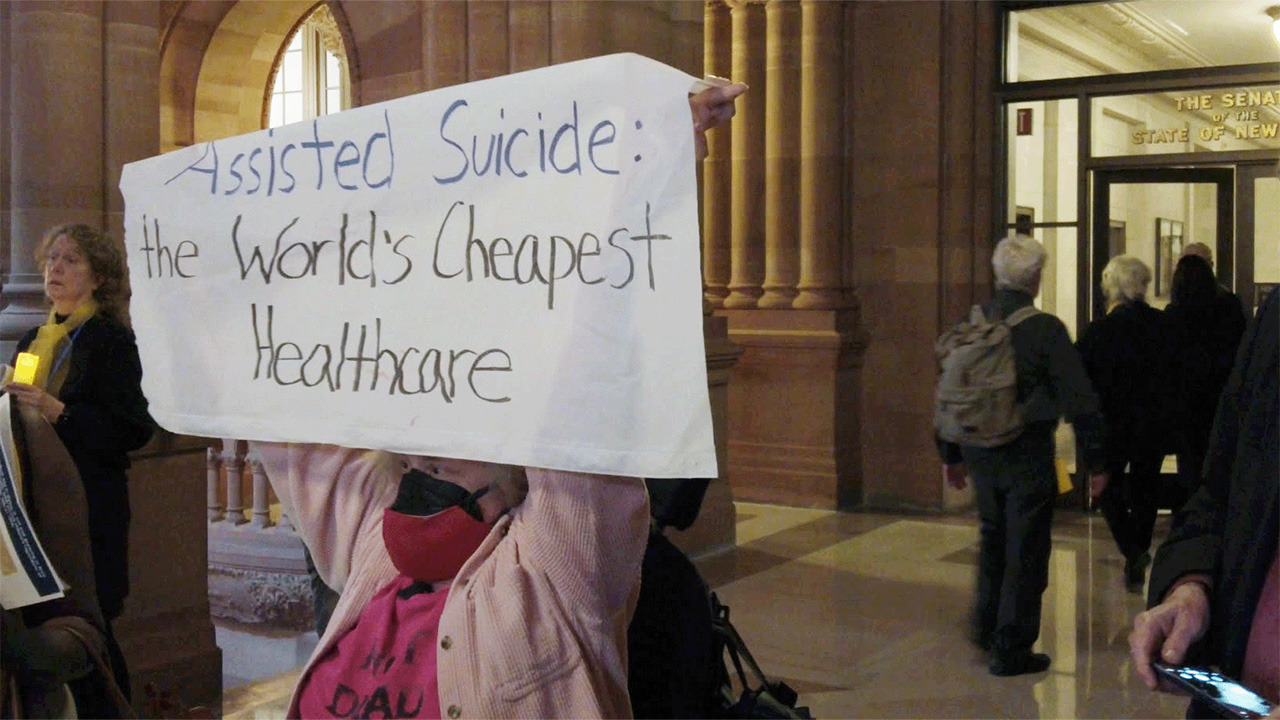
American Masters
Marlee Matlin: Not Alone Anymore
Marlee Matlin, the first Deaf actor to win an Academy Award, looks back on her remarkable life, career, and the complexities of being the “first.”
Life After coalesces the missing voices of the disabled community in the contemporary debate around assisted dying.


Reid Davenport makes documentary films from a disability rights perspective. Davenport’s film, I Didn’t See You There, won the Directing Award for U.S. Documentary at the 2022 Sundance Film Festival and the Truer Than Fiction Award at the 2023 Independent Spirit Awards.

Colleen Cassingham is a producer at Multitude Films focused on politically committed, artful nonfiction. She produced the IDA Awards-nominated shorts collection Queer Futures (CPH:DOX 2023) which launched on Criterion Channel. She is a 2023-2024 Sundance Institute Producers Lab Fellow and Impact Partners Documentary Producers Fellow.

Jess Devaney is a producer and the founder and president of Multitude Films. Their latest films include the Netflix Original Power, Oscar-shortlisted How We Get Free, the Indigo Girls film It’s Only Life After All, Emmy Award-winning Lowndes County and the Road to Black Power, Pray Away, Always in Season, and The Feeling of Being Watched, among others.
Learn more about funding opportunities with ITVS.
Life After is an investigative documentary that exposes the web of moral dilemmas and profit motives surrounding assisted dying. Disabled filmmaker Reid Davenport uncovers abuses of power while amplifying the voices of the disability community fighting for justice and dignity in an unfolding matter of life and death.
In 1983, a disabled Californian woman named Elizabeth Bouvia sought the “right to die,” igniting a national debate about autonomy and the value of disabled lives. After years of courtroom battles, Bouvia vanished from public view. Davenport embarks on a personal investigation to find out what really happened to Bouvia and reveal why her story is relevant today.
Disabled people continue to face premature death—whether through the case of Michael Hickson, who was left to die by a Texas hospital, or the choice of Jerika Bolen, a Wisconsin teen who received support from her community to end her life. Davenport’s exploration takes him to Canada, where regulations surrounding Medical Aid in Dying (MAID) have been expanded to allow disabled individuals unprecedented access—even when their deaths are not reasonably foreseeable. In Ontario, Davenport meets Michal Kaliszan, a disabled computer programmer who once considered MAID as his only option to avoid entering an institution.
In a society where ableism and inadequate healthcare often limit true choices, Life After exposes the intersection of systemic failures and personal autonomy. The film challenges the notion that assisted dying always represents a free choice, revealing how it can sometimes be perceived as the only option.
We’ll send you funding deadlines, events, and film news.
Connect with us now at itvs@itvs.org.